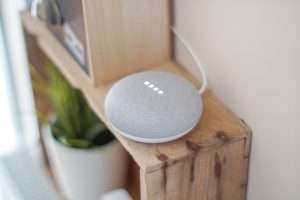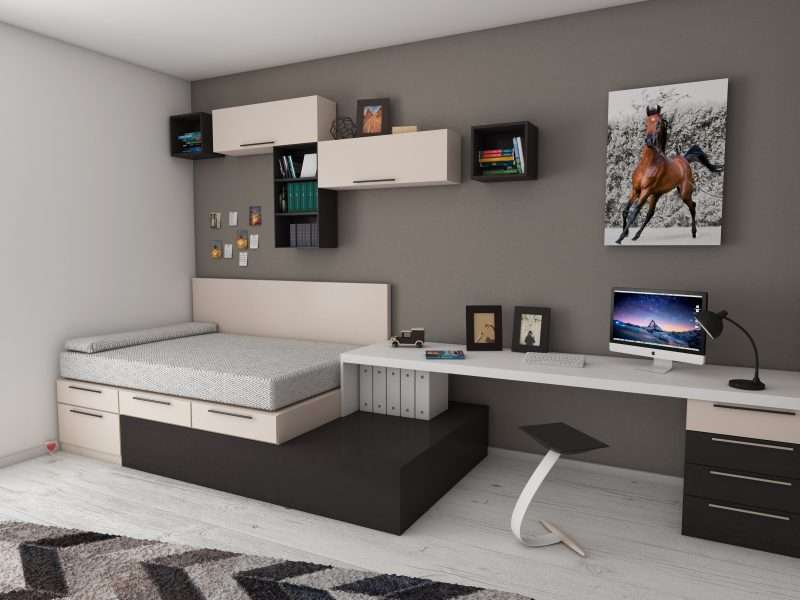Have you ever wished that your home could adjust its temperature, lights and blinds as soon as you entered it? Or that your audio system would get smarter with each passing day, just like the newest AI phone assistant? If so, then chances are you have been researching smart home technology. From energy efficiency to increased convenience and safety–the rise of automated homes has gone mainstream.

In this blog post, we will explore how the latest developments in smart home technology can be utilized for greater comfort and productivity in our daily lives. We’ll discuss cost-effectiveness and integration options available for creating a connected living space through modern advancements such as voice commands, remote control devices, automation platforms and more!
What is Smart Home Technology?
In this day and age, technology has advanced at an incredible pace. With the rise of smart homes, our own humble abodes are becoming more intelligent by the minute. But what exactly makes a home “smart”? It’s not just about having the latest gadgets and gizmos, but rather a seamless integration of different devices that are connected to each other and controlled via a central hub. From thermostats and lighting control to security systems and even entertainment devices, a smart home is a place that offers convenience, efficiency and above all, comfort to its occupants. It’s a home that adapts to your needs and preferences, making day-to-day living a hassle-free experience.
So, if you’re someone who’s always on the lookout for ways to simplify your life, a smart home might just be the answer you’ve been looking for. With advancements in technology, homeowners are now able to make their homes smarter and more efficient. Smart home technology includes devices such as thermostats, lighting, security systems and home assistants. These devices can be easily controlled and monitored through a centralized hub such as a smartphone or tablet.
Smart home technology can save homeowners money on their energy bills and improve their overall quality of life by making tasks easier and more convenient. Imagine being able to turn on your lights, adjust your thermostat and secure your home with just a few taps on your phone! Smart home technology is changing the way we live and is only going to become more widespread in the future.
The Benefits of Home Automation
In today’s fast-paced world, everyone is looking for ways to simplify their lives and save time. That’s where home automation comes in. With the touch of a button or even a simple voice command, you can control everything in your home from your lights to your thermostat. Not only does this make your life easier and more convenient, but it can also save you money on your energy bills.

Additionally, home automation can provide you with greater peace of mind by allowing you to monitor your home from anywhere in the world. Whether you’re at work, on vacation, or just out for the day, you can check in on your home with ease. So why not embrace the benefits of home automation and take control of your home today?
Smart Home Technology for Convenience and Security
Smart home technology has revolutionized the way we live our lives. With just the touch of a button, we can control our homes, ensuring both convenience and security. From adjusting our thermostats to setting security alarms, smart homes have it all.
Not only does this technology make our day-to-day lives easier and more comfortable, but it also keeps our homes safer than ever before. As we continue to embrace new advancements in technology, smart homes have opened up a whole new world of possibilities. The thought of living in a house that can predict our every need is no longer science fiction, but a reality that we can embrace today.
The Role of Artificial Intelligence in Home Automation
Artificial intelligence, commonly referred to as AI, is a field of computer science that is dedicated to creating machines that can perform tasks that would typically require human intelligence. These tasks can range from solving complex problems to making decisions based on data analysis. AI is rapidly growing in popularity and importance, as it has the potential to revolutionize a wide range of industries.
With advancements in technology, machines are now able to learn and improve on their own, making AI an increasingly indispensable tool for modern society. While there is still much to be discovered and improved upon in the field of AI, it is exciting to think about the endless possibilities that may lie ahead.
With the advent of technology, home automation has become a reality for many households. Artificial Intelligence (AI) is gradually shaping the way we live our lives and is becoming an integral part of home automation. From voice assistants like Alexa to automated security systems, AI is playing a significant role in making our homes smarter and more connected.
With AI, we can control our home’s temperature, lighting and even the music that plays, all from our smart devices. As we continue to advance, AI will only become more intuitive, personalised and useful, revolutionising the way we interact with our homes. It seems like the sky’s the limit, and we can only imagine what other innovative ways AI will shape the future of our homes.
The Future of Smart Home Technology
The future is looking bright for smart home technology. With advances in artificial intelligence and the Internet of Things, our homes are becoming more connected and intuitive than ever before. From smart lighting and thermostats to voice-activated assistants and security systems, these technologies are transforming the way we live our daily lives.
But it’s not just about convenience and comfort – smart home devices also have the potential to significantly reduce our carbon footprint, saving energy and resources in the process. As more and more homeowners embrace these technologies, we can expect to see a world where homes are not just places to live, but also hubs of intelligent connectivity and sustainability.
Smart Home Technology for Energy Efficiency
In today’s world, smart home technology is becoming more and more prevalent. Not only does home automation offer convenience and ease of living, but it also provides an excellent opportunity to save energy and reduce monthly utility bills. From smart thermostats that learn your heating and cooling preferences to automated lighting that turns off when no one is in the room, these technologies significantly contribute to energy efficiency.
With the increasing concern about the environment and the rising cost of living, more and more people are turning to these smart home technologies to make their homes more sustainable and energy-efficient. The future looks bright for smart homes, and as technology advances, we can expect even more energy-saving possibilities.
Smart Home Integration with Other Devices
In our hyper-connected world, the notion of a Smart Home is quickly becoming an expectation rather than a novelty. With so many devices and applications available, it’s essential to find ways to integrate all aspects of your home automation system.

From voice commands to lighting, heating, and security, a properly integrated system can make life more efficient and enjoyable. The beauty of Smart Home Integration is that it allows for customization and flexibility. With the right strategy and tools, you can seamlessly connect and control all of your devices from a single app, making your home truly smart!
Considerations for Implementing Smart Home Technology
In a world where everything is connected, smart home technology has become an integral part of modern living. With devices that range from door locks to thermostats, it can be overwhelming to decide which ones are right for your home.
Considerations for implementing smart home technology include factors such as security, compatibility, and ease of use. One of the most important things to keep in mind is the potential for the technology to be hacked, making security a top priority. Ensuring that the devices you choose are compatible with each other and with your existing home systems is another critical factor.
Finally, choosing devices that are easy to use and integrate seamlessly into your daily routine is key. With careful planning and consideration, incorporating smart home technology into your life can enhance your living experience and simplify your daily routines.
Conclusion
It’s clear that smart home technology is the future of home automation; its versatility and ability to personalize and enhance virtually any living space make it a desirable choice for savvy consumers.
With options ranging from thermostats and lighting to audio-visual applications, smart home technology has something to offer everyone. The fact that it can be integrated with existing systems and controlled remotely makes it even more attractive as an investment. Its potential to reduce energy consumption while making life easier makes it a win-win.
Smart Home Technology is undoubtedly revolutionizing the way we interact with our homes, creating a more convenient environment that exists in harmony with nature. With the way things are evolving, who knows what could be possible down the line? It’s an exciting time for those passionate about tech, so make sure to keep an eye out for more innovative solutions.






Comments